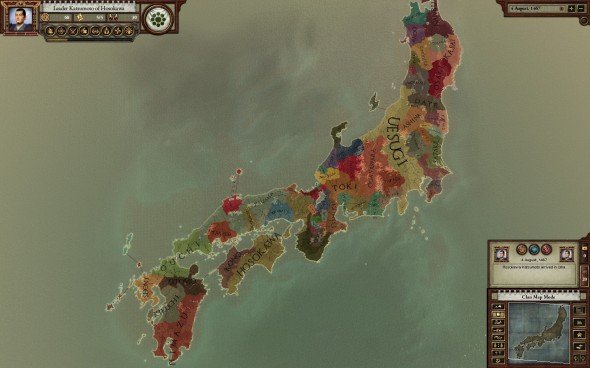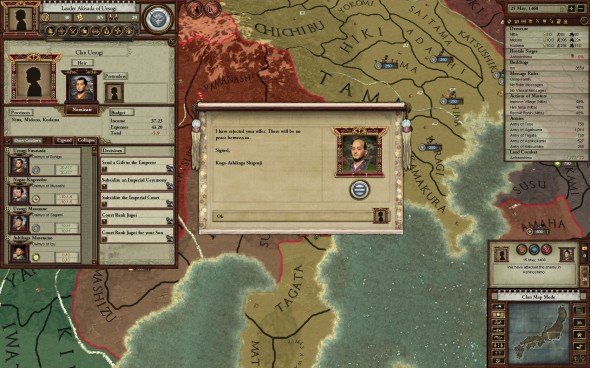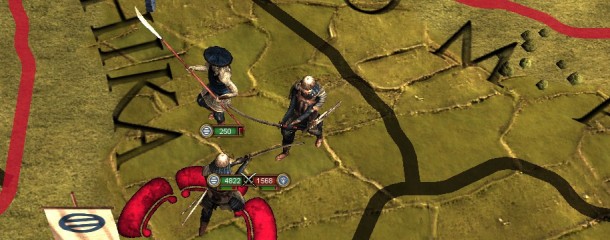Our Verdict
The first few times I tried Sengoku, I was lost, but the more I played this game, the more I enjoyed it.
PC Gamer's got your back
I'm doing well. I'm a mean son of a Bitchu, but my courtiers are too shit-scared of me to rebel. They scheme endlessly, but my Master of the Guard penetrates their plots with ease. I just wait for them to garner enough support, then expose them to destroy their honour, and order the powerful ones to kill themselves.
I won't be Shogun – my territory is too small and my victories similarly tiny – but my four wives mean I've produced enough offspring that one of my children might be. If someone else doesn't get there first.
Sengoku is a feudal conquest sim set in the Sengoku period of Japan – the same era as Shogun: Total War. You can start as almost any lord, ranging from greats like the Uesgi and Hotokawa clans, to the most minor lord isolated far off Japan's coast with responsibility to a great chain of lieges and about as much chance of becoming Shogun as Jimmy Saville.

What the game doesn't tell you is... well, a lot. You're told you need to own 50% of the country to be Shogun, but Paradox seem to have eschewed the oft-derided tutorial for an in-game help system, which explains the interface as you click on it without revealing much of the core mechanics. A brave/foolhardy choice that will lose them a lot of impatient players. What are we meant to do, read Sun Tzu?
For example: honour is one of the key concepts, built up slowly through such actions as the assignment of titles, donating money to the Emperor, and religious observance. If it drops too low, your vassals rebel or plot. It's like a band where the lead singer has been an arsehole once too often. I had half my home territory rise up and form a new state because my honour was too low from going to war. But the game doesn't tell you what constitutes 'low' honour, or how many other hidden mechanics are at work, and it's not always clear what the honour cost of an action is.

Both you and the AI can take part in plots, scheming against your enemies, allies and overlords – and they against you. One character selects the target, then invites other players to join in. When it works, it's spectacular. All the tools of medieval Japan are at hand to encourage plotting: hostage swaps, ninjas to undermine or assassinate, split inheritances and so on.
Beyond this, the diplomacy system is lightweight: Sengoku is a little more stripped down than Paradox's other dynastic titles. There's no tech tree, for example. Combat is equally rudimentary, consisting of at most three types of unit (spearmen, cavalry or primitive gunmen), and numbers ticking down according to defences and location. The largest army normally wins.
Keep up to date with the most important stories and the best deals, as picked by the PC Gamer team.
The simple building system is slow and expensive, often taking years, and enemy ninjas can destroy guilds or religious locations with ease. Despite this, the actual map of Japan is easily the best thing in the game, packing in more easily-digestible information than an edible library.
The first few times I tried Sengoku, I was lost, but the more I played this game, the more I enjoyed it.


